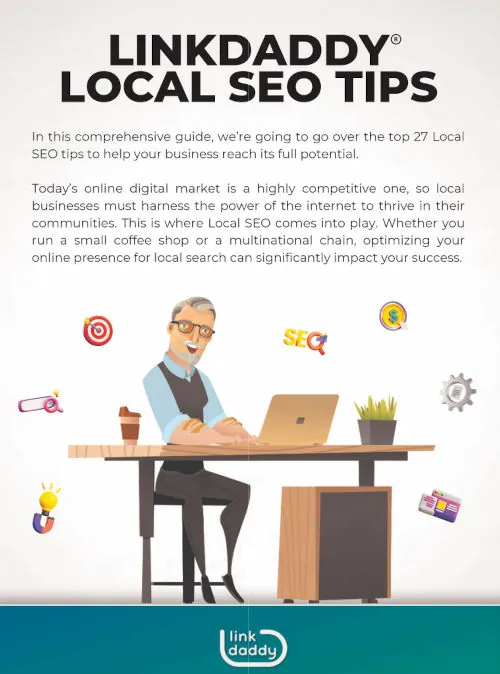
It’s every website owner’s dream to get their site to rank number one on Google. After all, that’s what search engine optimization (SEO) is all about—um, right? The quick answer is yes…and no. You see, there are really two types of ranking factors: those that directly affect your website and those that are based on user behaviour. What we’re talking about here are the things you can do on your site to improve your chances of ranking higher in search results.
When you know about the different factors that can affect your website’s ranking on Google, you can make informed decisions about how to improve your site and start climbing the search engine results pages (SERPs). Let’s take a look at some of the most important ranking factors that you need to be aware of.
Important Ranking Factors for SEO

1. The Content on Your Website
If you want your website to rank higher on Google, you need to make sure that it contains high-quality, relevant content. Not only does your content need to be well-written and informative, but it also needs to be keyword-rich—containing the words and phrases that potential customers are likely to use when searching for products or services like yours.
2. The Structure of Your Website
The way that your website is designed can greatly affect the user experience, which is an important ranking factor. If your website is difficult to navigate or doesn’t look reputable, potential customers are likely to click away and look for another site. Make sure that your website is easy to use and looks professional in order to give visitors the best possible experience.
3. The Age of Your Domain
The age of your domain name can also affect your website’s ranking on Google. In general, older domains are more likely to rank higher than newer ones. This is because Google views older domains as being more established and trustworthy. If you have a new website, you’ll need to be patient and wait for it to gain authority over time before you start seeing improved rankings.
4. Your Site’s Page Speed
When your website takes more than a few seconds to load, potential customers are likely to click away in frustration. Google knows this and takes page speed into account when determining search engine rankings. If you want your website to rank higher, you need to make sure that it loads quickly.
5. The Number of Backlinks
You Have Backlinks are links from other websites that lead to your site. They’re an important ranking factor because they show Google that your site is popular and relevant. The more backlinks you have, the better. But beware: low-quality or spammy backlinks can actually hurt your website’s ranking. So, it’s important to focus on building high-quality backlinks from reputable websites.
6. On-Page SEO
On-page SEO is the process of optimizing individual web pages in order to rank higher in search results. It includes things like choosing the right keywords and using them throughout your content, as well as optimizing your website’s title tags, meta descriptions, and headers. By taking care of on-page SEO, you can give your website the best possible chance of ranking high for your target keywords.
7. Mobile-Friendliness
In today’s world, more and more people are using their smartphones and other mobile devices to access the internet. That’s why it’s important to make sure that your website is mobile-friendly. If it isn’t, you’re likely to lose potential customers who will click away in frustration. Google also takes mobile-friendliness into account when determining search engine rankings, so it’s an important factor to consider if you want your website to rank higher.
8. User Experience
User experience is another important ranking factor. Google wants to make sure that its users are finding the best possible websites when they perform a search, so it takes things like ease of navigation and overall design into account when determining rankings. If you want your website to rank higher, you need to make sure that it’s easy to use and gives visitors a good experience.
9. Social Signals
Social signals are signals from social media platforms like Facebook and Twitter that indicate the popularity of a piece of content. They’re an important ranking factor because they show Google that people are talking about your website. The more social signals you have, the better. So, make sure to promote your content on social media and encourage people to share it.
10. Freshness
Freshness is another important ranking factor. Google wants to make sure that its users are finding the most up-to-date and relevant information when they perform a search. That’s why it takes things like the age of your content into account when determining rankings. If you want your website to rank higher, you need to make sure that your content is regularly updated with fresh, relevant information.
11. SSL Certification
SSL certification is a security measure that encrypts data between your website and visitors’ web browsers. It’s one of the many signals that Google uses to determine the safety and security of a website. If you want your website to rank higher, you need to make sure that it has an SSL certificate.
12. Structured Data

Structured data is a form of code that helps search engines understand the content on your website. It’s used to create rich snippets, which are small pieces of information that appear in search results next to your listing on Google. Adding structured data to your website can help it rank higher and get more click-throughs from search results.
As you can see, there are many factors that go into SEO. By focusing on these 12 factors, you can give your website the best possible chance of ranking higher in search results.SEO is an important part of any website’s success. By taking the time to optimize your site for search engines, you can increase your chances of ranking higher and getting more traffic. And, as you now know, more traffic can lead to more sales and more customers. So, if you’re not already doing so, start focusing on SEO today. It could be the key to success for your business.
How To Improve SEO for Your Business
If you’re a business or website owner, you must have heard of the term SEO by now. Search Engine Optimization is the process of optimizing a website for Google’s search engine with the goal of earning higher web traffic levels and improving the visibility of the site. There are many different factors that contribute to good SEO, but some of the most important ones include:
1. Keywords
Keywords are one of the most important aspects of SEO. They are the terms that people use when they search for something on Google. In order for your website to rank higher on search engine results pages (SERPs), you need to make sure that your site includes the keywords that people are searching for.
2. Title Tags
Title tags are HTML elements that indicate the title of a web page. They are one of the most important on-page SEO factors because they tell Google what your page is about. Make sure to include relevant keywords in your title tags so that Google can more easily find and index your pages.
3. Meta Descriptions
Meta descriptions are short descriptions of a web page that appear in search results. They give potential visitors an idea of what your page is about and can persuade them to click through to your site. Make sure to include relevant keywords in your meta descriptions so that Google can more easily find and index your pages.
4. H1 Tags
H1 tags are HTML elements that indicate the main heading of a web page. They are one of the most important on-page SEO factors because they help Google understand the structure of your page and what it’s about. Make sure to include relevant keywords in your H1 tags so that Google can more easily find and index your pages.
5. Image Alt
Text Image alt text is the text that appears when an image can’t be displayed. It’s important for SEO because it helps Google understand what an image is about. Make sure to include relevant keywords in your image alt text so that Google can more easily find and index your pages.
6. Linking
Linking is the process of adding links from one webpage to another. Links are important for SEO because they help Google understand the relationships between different pages on a website. Make sure to add the necessary types of links to your website including, but not limited to, internal links, external links, and backlinks.
7. Sitemaps
A sitemap is a file that contains a list of all the pages on a website. It’s important for SEO because it helps Google index all the pages on your site. Make sure to create and submit a sitemap to Google so that they can more easily find and index your pages.
8. Robots.txt
A robots.txt file is a text file that tells search engines which pages on a website should be indexed and which should not. It’s important for SEO because it helps you control how Google crawls and indexes your site. Make sure to create and submit a robots.txt file to Google so that they can more easily find and index your pages.
9. Google Analytics
Google Analytics is a free tool that allows you to track your website’s traffic and performance. It’s important for SEO because it helps you understand how people are finding and using your site. Make sure to set up Google Analytics on your website so that you can track your SEO progress and performance.
10. SEO Tools
There are many different types of SEO tools available, both free and paid. These tools can help you with keyword research, link building, tracking your website’s performance, and more. Some of the most popular SEO tools include Moz, Ahrefs, and SEMrush.
Working on SEO with an Agency

Now that you’ve seen and learned about all the different SEO ranking factors and what you can do to improve your website’s ranking, you may be wondering if it’s worth working with an SEO agency. Working with an SEO agency can be beneficial because they have the experience and knowledge to help you improve your website’s ranking.
They can also help you with other aspects of digital marketing such as pay-per-click (PPC) advertising, social media marketing, and more. If you decide to work with an SEO agency, make sure to do your research and choose one that is reputable and has a good track record. You should also make sure to ask them about their pricing and what services they include in their package.
SEO is an important part of digital marketing and can help you improve your website’s visibility and traffic. One thing you should always keep in mind when it comes to SEO is it’s not something that would bring you success overnight. It takes time, effort, and patience to see results. If you’re serious about improving your website’s ranking, then you need to be willing to put in the work and commit to the process.
SEO is an ongoing process and it’s important to keep up with the latest trends and changes. If you’re not sure where to start or don’t have the time to do it yourself, then working with an agency may be the best option for you.
The Bottom Line
SEO is a complex and ever-changing field, but it’s important to understand the basics if you want your website to be successful. By following the tips in this article, you can start to improve your website’s ranking and visibility. Just remember that SEO takes time, effort, and patience to see results. If you’re not seeing the results you want, then don’t give up and consider working with an agency.









